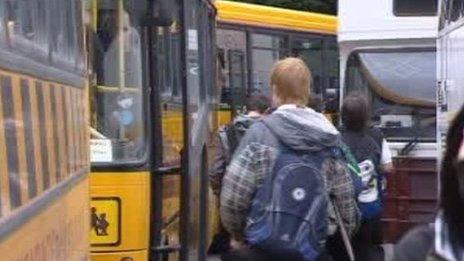School buses: Pupils to miss out after law change
- Published
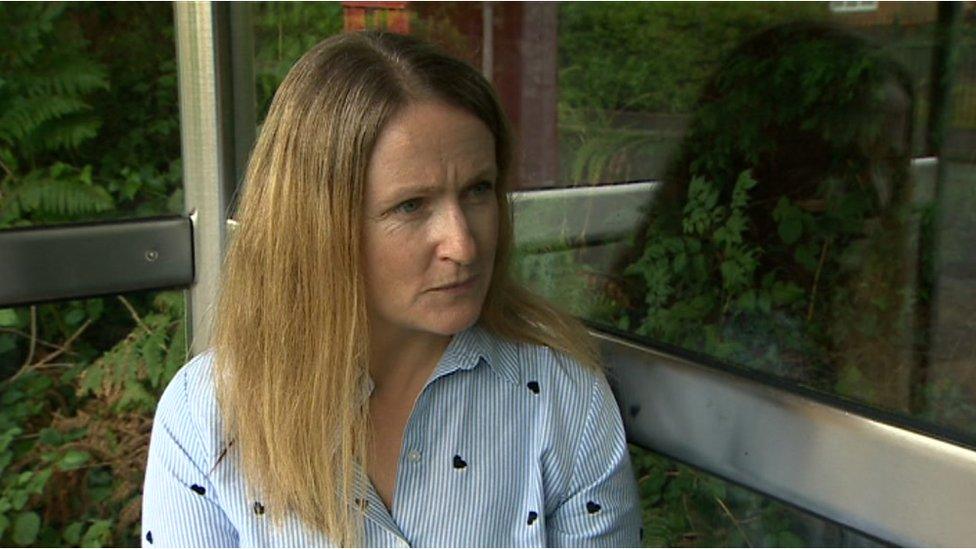
Carys Jenkins' 11-year-old son does not qualify for free transport
Some children face not having access to buses to school as the vehicles do not comply with new laws.
From January, paid-for public buses must accommodate wheelchair users, but many school buses are not equipped.
It means pupils not eligible for free school transport - who usually buy a place on board - are being told they will no longer be able to do so.
Councils said they were unaware the law applied to school buses, but the UK government said they had been informed.
It has left many parents worried about how their children will get to school safely.
Carys Jenkins' 11-year-old son Rhys does not qualify for free school transport because he lives within three miles of his secondary school, Ysgol Plasmawr in Fairwater, Cardiff.
She had hoped to pay for a seat for him because the route to school is 2.5 miles along busy roads from their home in Morganstown.
Instead, she and other parents have drawn up a rota to take their children to and from school.
"We're still a little bit anxious about what clubs they'll want to attend after school and whether we can help them get to those clubs," she said.
"Just knowing that he's on a school bus would've given us the peace of mind that he's coming home safely.
"So now that we're going to have to be dependent on other people and we're going to have to check our phones to make sure that they're getting home safely."

Rhys' trip to school will rely on a rota between parents
Angie Town has faced the same problem, with her daughter Gwen starting sixth form at Ysgol Plasmawr in September.
She told BBC Radio Wales Breakfast: "We had a letter from the council which was really unexpected - we thought the bus passes were actually arriving for the up and coming term.
"I don't really know what to say we were just really, really shocked...it's going to leave a lot of parents in the lurch."
Who is eligible for free school transport?
Primary school pupils get it if they live two miles or more from the nearest suitable school
Under-16s at secondary school get it if they live three miles or more from the nearest suitable school
Currently, those who are not eligible can buy a spare place on the bus to get to school
But this means school buses take on the status of public buses
Under the new Public Service Vehicle Regulation, all such buses must accommodate disabled passengers
So, for councils to comply with the law, school buses must not take any paying passengers to school unless they are equipped for wheelchairs
Why can't councils update their buses?
Cardiff council said it believed Department for Transport (DfT) legislation - that all public bus routes must be operated by vehicles equipped to accept wheelchairs - would not apply to school bus contracts.
A spokesman said none of its school buses had the required disabled-accessible low floors and wheelchair access and the authority has now written to parents saying it will not be able to sell tickets for seats after the autumn term.
"These vehicles are, in common with all other councils in Wales, not used as pupils requiring such access invariably have a statement of special educational needs and are provided with transport according to their individual needs," he added.
The council said it would not be able to change its fleet as it would incur huge costs and it would also mean pupils being transported in buses with no seat belts and which allow standing.
BBC Wales’ Newyddion9 news programme contacted other councils as the changes could affect pupils across Wales - some authorities are still considering what the legislation means for them.
'Plenty of time to plan'
The Welsh Government said: "There has been nearly 20 years to prepare for the implementation of these regulations. This is plenty of time to have planned accordingly to allow the roll-out of new vehicles that meet the requirements.
"The intention of the regulations is to ensure that disabled people can get on and off regulated public service vehicles in safety and without unreasonable difficulty.
A DfT spokesman said: "A good bus service is absolutely essential to get children, especially those who are disabled, to school on time.
"Bus and coach accessibility regulations were first introduced nearly two decades ago, ensuring that services are fully accessible.
"We expect operators and authorities to comply and continue to work with local authorities on how they can achieve this."
What do councils say?
Cardiff - The new legislation will apply to 32 school bus services and affect about 110 children
Swansea - Continuing to sell tickets for the autumn term and conducting an audit of buses
Wrexham - No passes will be offered after 31 December 2020
Blaenau Gwent - The council does not sell spare places on school buses, so not affected
Merthyr Tydfil - Not affected
Caerphilly - Not affected
Anglesey - The policy is being reviewed and a final decision will be confirmed by 1 January 2020
Ceredigion - Considering its position
Flintshire - Considering its position
Bridgend - Sales of its spare seats have been suspended
Vale of Glamorgan - The change will affect 27 pupils
Pembrokeshire - The council does not charge for spare seats, but this is being reviewed.
Conwy - No information available
- Published18 June 2019
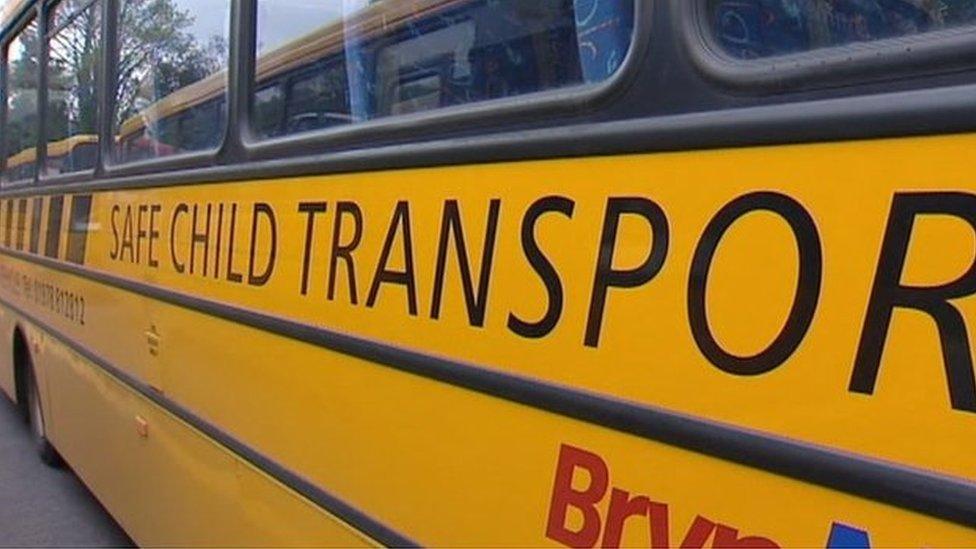
- Published5 September 2018

- Published14 February 2016
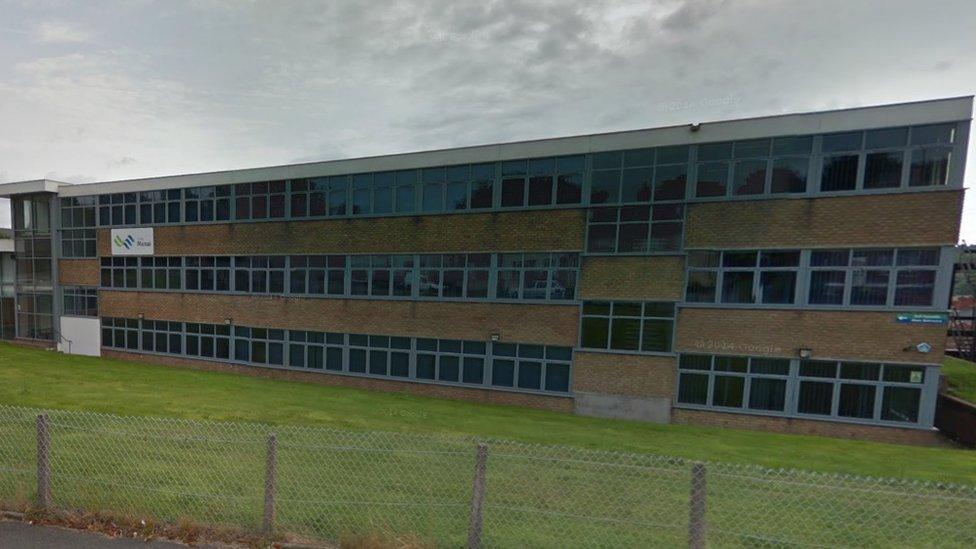
- Published31 July 2015
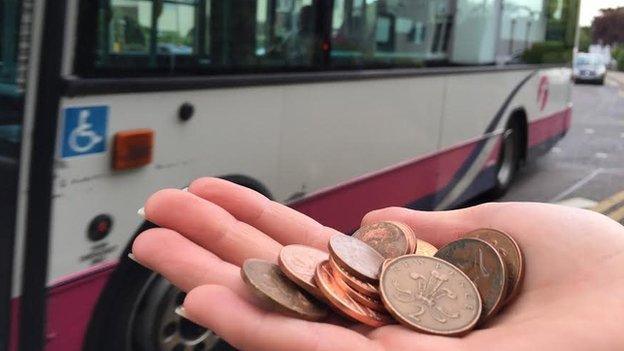
- Published26 September 2014
